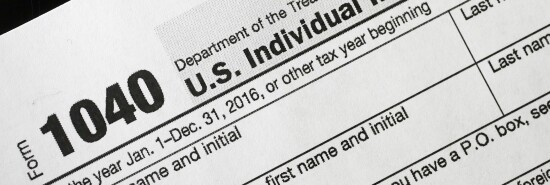
Taxes have consequences — but not for the rich
Charity Hayden
Video Embed
“If you pursue an economic strategy of cutting taxes, cutting spending, and reducing government, it will lead to a failure,” Commerce Secretary Gina Raimondo said at a recent Brookings Institute event. But just a few short years ago, we saw the U.S. poverty rate drop to its lowest rate ever and the unemployment rate fall to 3.5% as a result of the Trump tax cuts.
Raimondo’s remarks were disappointing given her prior experience working for a venture capital firm. She surely knows better. For those truly skeptical that lowering tax rates leads to economic growth, it is prudent to revisit the history of income taxes, as relayed in the newly released book Taxes Have Consequences by Drs. Arthur B. Laffer and Brian Domitrovic.
As the book dutifully explains, no matter how high income tax rates have climbed historically, the rich end up paying around the same share — about 20% in taxes.
Take, for example, the widow of a founder of the Dodge automobile company. During the 1950s, when the highest marginal income tax rate was 91%, she regularly “reported none of the proceeds of her fortune of $56 million (half a billion dollars today). This was because Mrs. Dodge had put all of her money in municipal bonds — the state and local government securities whose interest has always been untaxable at the federal level.”
Throughout the history of our nation, we have seen drastic ebbs and flows in the economy. Likewise, we have seen drastic shifts in income tax rates ranging from 94% to as low as 28%. As shifts occurred in the tax code, up or down, most other aspects of our economy have changed with them. But one thing has persistently stayed the same: The top income-earners consistently paid around 20% of their income in federal taxes.
As Taxes Have Consequences explains, tax-reported income goes down when tax rates are high, and it goes up when tax rates are low, which is one of the reasons the highest earners end up paying roughly the same rate. The authors write, “The tax code’s current length of 70,000 pages essentially corresponds to the degree of the exclusions and exemptions from the top tax rate. The schedule of individual income rates takes a page or two to enumerate.”
But 70,000 pages only captures the federal tax code. We have state income taxes as well (also chock full of exemptions). All of the paperwork is designed to protect the income of the rich, and indeed, it does.
Sheltering money necessitates pulling resources from productive wealth (ie: investing in business). This adds additional damage to the economy, stalls employment rates (or worse), and removes opportunities for the middle class to overcome income inequality. Ultimately, high taxes on the rich harm the poor. The best form of welfare is a good-paying job.
While the effective tax rate for the rich has historically stayed roughly the same, the entire economy reacts in response to changes in taxation. When income taxes go up, unemployment goes up. When income taxes go down, government revenue actually goes up (case and point, the Trump tax cuts have already paid for themselves). And when income taxes go up, the rich are incentivized to elude taxes (generally legally) at the expense of investing in productive enterprises that will improve our future.
It is no surprise that the economy is still a top issue for voters. This book couldn’t be more timely. After all, House Ways and Means Chairman Rep. Richard Neal (D-MA) has promised to raise taxes if the Democrats stay in power. It is more vital now than ever that we understand the history of taxes in America and their consequences. Taxes Have Consequences — even for Secretary Raimondo.
Charity Hayden is the Virginia state director for the Capitalist League.
